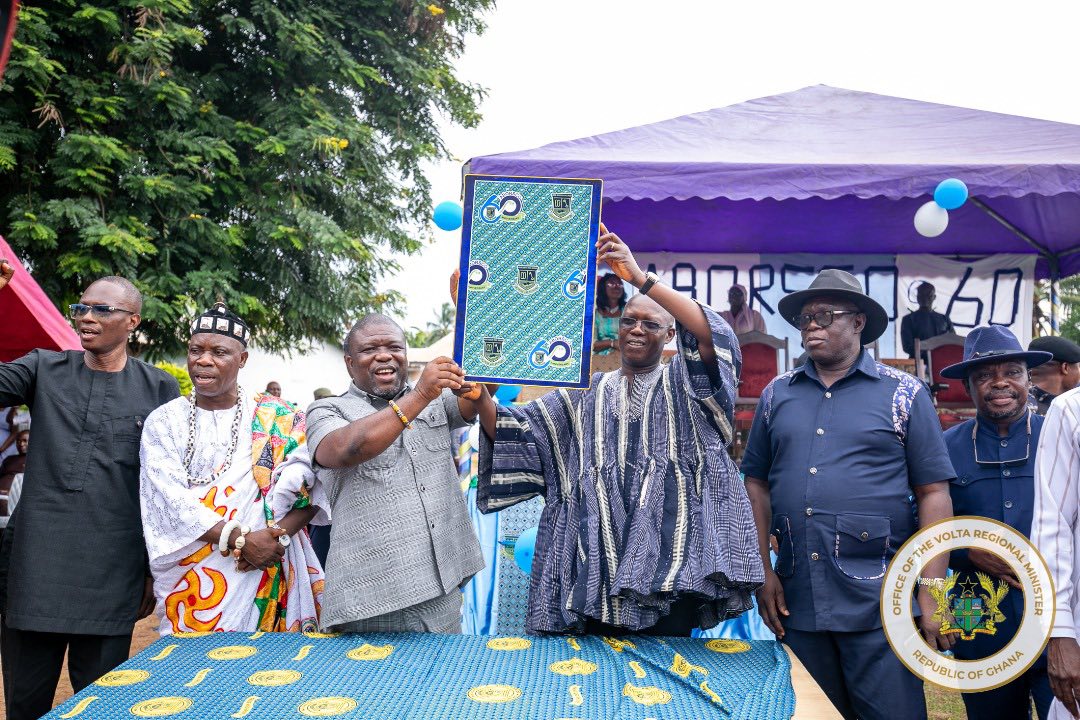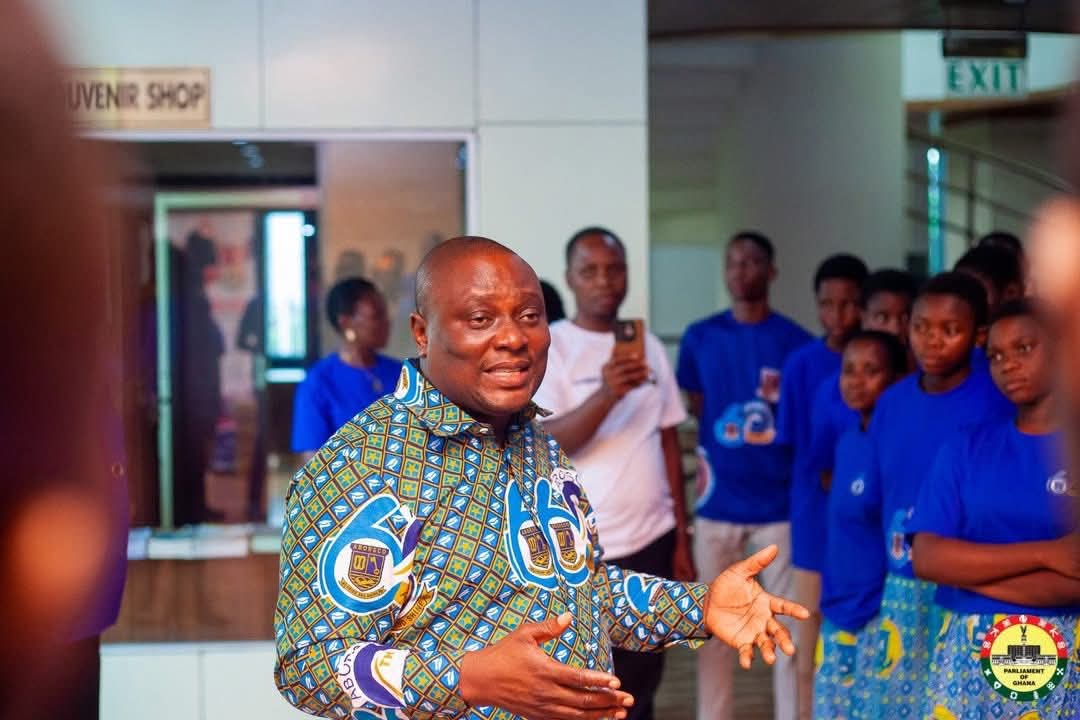This book sheds light on the crucial role of political parties in fostering inclusive governance, promoting social justice, and advancing democratic norms. By examining case studies from around the globe, “we uncover the strategies employed by parties to engage citizens, mobilize support, and translate electoral mandates into tangible policy outcomes. Path to Power: A Comprehensive Guide on How to Be a Politician serves as a beacon for aspiring leaders, offering them the tools not just to win office but to serve with wisdom, courage, and humility”.
This book is not just about the mechanics of politics; it is also about the underlying principles and values that should guide every politician. It is a reminder that power, when wielded responsibly and with integrity, can be a force for positive change.
Below are Author’s Address
By Gladstone Stanley
Theme: Reclaiming the Soul of Politics for the Good of Nations
Distinguished guests, ladies and gentlemen, friends and fellow custodians of democracy,
As we gather under the gracious canopy of shared hope and a collective yearning for better governance, I stand before you humbled — humbled not merely by the weight of the moment, but by the sacred responsibility that comes with the written word when it seeks to touch the soul of a nation.
When I first put pen to paper on the journey that has culminated in the four books we are launching today — Political Party Governance, Path to Power: A Comprehensive Guide for the Politician, Enigma of Political Gamesmanship, and Beneath the Surface: Uncovering the Secrets of Political Influence — I was driven not by ambition, but by a gnawing burden: a burden to tell the truth, to explore the unseen currents that stir our political waters, and to offer a roadmap for restoring integrity to a field that so desperately cries out for renewal. These works are not just academic exercises. They are deeply personal.
They are born from nights of reflection, years of observation, and a heart that beats with both love for my country and concern for its future. I have walked the hallways of policy. I have seen the silent pacts sealed with a handshake behind closed doors. I have witnessed the disillusionment in the eyes of citizens whose dreams of justice were deferred by the very institutions meant to protect them. And from all these experiences, one truth resounded clearly: politics must once again be made noble. Each book you hold today explores a critical dimension of that mission. Political Party Governance peels back the curtain on the internal machinations of political parties — the first crucibles where either the seeds of national greatness or the roots of dysfunction are planted.
This book sheds light on the crucial role of political parties in fostering inclusive governance, promoting social justice, and advancing democratic norms. By examining case studies from around the globe, we uncover the strategies employed by parties to engage citizens, mobilize support, and translate electoral mandates into tangible policy outcomes. Path to Power: A Comprehensive Guide on How to Be a Politician serves as a beacon for aspiring leaders, offering them the tools not just to win office, but to serve with wisdom, courage, and humility.
This book is not just about the mechanics of politics; it is also about the underlying principles and values that should guide every politician. It is a reminder that power, when wielded responsibly and with integrity, can be a force for positive change.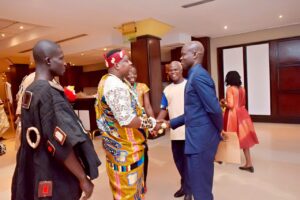
It is a call to action for those who aspire to be leaders, not just in title, but indeed. Enigma of Political Gamesmanship: Unveiling the Intricacies with Practical Illustrations dares to chart the shadowy territory of political strategy — not to glorify it, but to equip the reader with discernment, to separate healthy competition from toxic manipulation. This book is not just a celebration of political prowess; it is also a cautionary tale. For every triumph, there is a potential downfall, and for every brilliant move, a hidden vulnerability.
The art of political gamesmanship is a double-edged sword, capable of both building bridges and burning them, of uniting nations and tearing them apart. And Beneath the Surface — the most ambitious of the four — invites you into the hidden theatre where power is brokered, alliances are forged, and the fates of nations are quietly decided, often far removed from public scrutiny. This book reveals how power is wielded away from the public by unseen figures who shape the destinies of political parties and nations, who never hold an official title or stand for election. It shows how the media takes advantage of the game of perception, persuasion, and power to become a hidden kingmaker. It explains how lobbyists and corporate gurus skillfully maneuver to shape policies in their interest.
It exposes how intelligence and covert agencies subtly range from espionage to election interference to protect their interests. It reveals how secret societies and elite networks are deeply entrenched in the political structure to shape the destiny of countries.
The book highlights the cunning calculations of those who understand that power is never given; it is taken. It demonstrates how financial giants, international organizations, and policy think tanks dictate the course of nations.
It answers the question of why political kingmakers choose the weak and the willing over the strong and the unwilling. It shows how unseen forces manipulate the trajectory to ensure that growth remains an illusion rather than a reality. It explains how those who seek power often endure vilification at the hands of their opponents, which causes them to attract public sympathy, and when power is finally given to them, scarred by the wounds, they use the power as a weapon of retribution, causing those who once stood by them to regret their support.
The book highlights the paradox of how politicians easily forge alliances with their sworn enemies rather than with their closest allies, family members, or even their party faithful. Finally, it explores how political influence will traverse in the future to succeed. Throughout all these pages, one theme persists: the soul of politics must be reclaimed. We must dare to imagine a new political order — not one driven by selfish ambition and short-term calculations, but by a vision rooted in justice, service, and the common good.
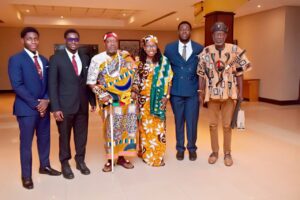
We must call forth leaders who understand that true power is stewardship, not conquest; that leadership is about lifting others, not climbing over them. But this reclamation project cannot be left to a few. It is a call to action for all of us. For party delegates and grassroots organizers.
For journalists and civil society actors.
For educators and young dreamers.
For elders who still remember when promises made meant promises kept.
And for every citizen who refuses to surrender hope.
The time has come to disrupt the cycles of cynicism and despair. The time has come to insist that political parties be truly democratic and transparent.
That politicians embrace public service not as a career, but ashort-terms a calling. That citizens reclaim their rightful place not as passive observers, but as active architects of the future.
Let us reject the notion that politics is inherently dirty, and instead proclaim that when done right — when anchored in values, principles, and courage — politics is one of the noblest endeavors of humankind. Let us remember that the destiny of nations is shaped not in moments of spectacle but in the quiet decisions of those who dare to stand for what is right, even when it is not convenient.
As I offer these books to you today, I do so with a solemn prayer: that they will stir your conscience, fuel your passion, deepen your understanding, and above all, ignite in you a relentless commitment to reclaim politics for the good of our nations. Let us walk this journey together. Let us write, not just with words but with deeds, a new chapter of leadership — one worthy of the dreams and sacrifices of our ancestors, and the hopes of generations yet unborn. May the soul of politics be revived. May nations flourish because we dared to believe again.
Thank you, and may God bless you all.
CHAPTER TEN BOOK TITLE: BENEATH THE SURFACE: UNCOVERING THE SECRETS OF POLITICAL INFLUENCE AGENDA 20/80: THE ANATOMY OF CONTROLLED CHOICE PAGES: 159 – 161
In the shadowed corridors of political parties, where promises are whispered rather than proclaimed, a chilling strategy known to insiders as Agenda 20/80 holds sway. It is not written in constitutions nor inscribed in manifestos. Yet, it governs the selection of party executives and presidential flagbearers with an invisible authority stronger than any electoral code.
The mechanics are deceptively simple: 80 percent of delegates are believed to be influenceable — susceptible to financial, emotional, or ideological persuasion — while only 20 percent are considered wise, firm, and discerning. This numerical truth becomes the lever through which powerbrokers tilt the entire process in favor of pre-chosen candidates.
The strategy thrives in the prelude to party primaries, a delicate phase where public excitement is high but decisions have already been taken behind tightly closed doors. Power brokers — often unseen figures operating from plush offices or private compounds — know that timing is everything. Several days before the official vote, they convene.
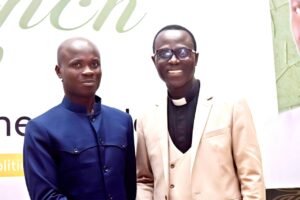
Not in press-covered rooms, but in guarded venues where access is earned by loyalty and strategic value. There, they do not debate. They decide. The question is not who is most qualified? It is who will serve the broader agenda with the least resistance? Only after this clandestine consensus is achieved does the machinery begin to move. The night before the election, messages ripple through the ranks like quiet waves. Delegates — often exhausted from the waiting, the lobbying, and the uncertainty — receive a call, a knock, a coded message: “This is our candidate.”
The tone is polite. The message is absolute. On election day, a psychological dance unfolds. Intelligence operatives, loyal not to the state but to the political elite, spread across the venue like spectators at a theatre. They are watching not the speeches, but the signs — body language, whispers, laughter, handshakes.
Their job is to assess whether the preselected candidate is on track to win, or whether adjustments are required in real time. If the atmosphere is favorable, the candidate makes a grand entry, often late, as if summoned by destiny. The crowd erupts. The cheers are not spontaneous. They are rehearsed. But they are effective. A subtle choreography follows. The losing candidate — often unaware of the final decision taken behind the scenes — had arrived earlier, hopeful, perhaps even confident. But there is no thunderous welcome, no embrace of popularity. People avoid eye contact. They drift away politely. No one wants to be photographed with a man or woman already branded as a political ghost. In these moments, the 80 percent act in unison — not because they were coerced, but because they were persuaded. Persuaded that survival, relevance, or reward lies in aligning with the predetermined victor.
The strategy of Agenda 20/80 is not unique to one nation. It has echoed through party corridors from Africa to Asia, from Eastern Europe to Latin America. In Ghana, Nigeria, and Kenya, such practices are whispered realities, evident in every party convention where a late entrant garners spontaneous celebration.
In the Philippines, a similar model plays out during barangay elections, where local power groups decide the outcome long before the people gather to vote. In Russia’s tightly managed party congresses, key candidates are selected far in advance, with the floor vote being a mere formality.
In the United States, the smoke-filled rooms of the early 20th century political machines operated with the same philosophy, with delegates receiving their final marching orders the night before a convention.
A striking example occurred in the ruling party of Zimbabwe during the days of Robert Mugabe. Delegates to the ZANU-PF congress often arrived with uncertainty but left unified — not by debate, but by a directive.
Those who refused to align were quietly replaced, discredited, or disqualified on technicalities. The illusion of democracy was preserved, even as its essence was hollowed out.
BOOK REVIEW BY MS. DEBORAH DZOKOTO BOOK TITLED: BENEATH THE SURFACE: UNCOVERING THE SECRETS OF POLITICAL INFLUENCE PAGE: 13 – 15
CHAPTER TWO THE MEDIA AS THE HIDDEN KINGMAKER
Politics, at its core, is a game of perception, persuasion, and power. While elected officials, political parties, and campaign strategists are often perceived as the primary architects of governance, the media operates in the shadows, subtly shaping public opinion, influencing political outcomes, and determining the fate of political aspirants. Often described as the Fourth Estate, the media is more than just a watchdog—it is a silent kingmaker that dictates who rises and who falls in the political arena. From television debates to social media campaigns, the media crafts narratives that can make or break a political career. This influence is seen in the way the media constructs the image of candidates, framing their persona, achievements, and controversies in a manner that either elevates or diminishes their political fortunes.
A well-crafted media image can propel a candidate to victory, while negative portrayals can destroy careers overnight. A classic example of this was witnessed in the 1960 U.S. presidential debate between John F. Kennedy and Richard Nixon, the first-ever televised presidential debate that changed the course of American political history. Kennedy, young and charismatic, appeared confident, well-groomed, and engaging. Nixon, on the other hand, appeared pale, visibly sweating, and less composed.
Those who listened to the debate on the radio thought Nixon had won based on his arguments, but television viewers overwhelmingly favored Kennedy. This debate showcased the power of visual media in shaping public opinion, setting a precedent for future elections worldwide. The impact of media representation has been evident in numerous elections, including those in Ghana.
During the 2016 general elections, the extensive media coverage of Nana Akufo-Addo’s “One District, One Factory” policy created a strong narrative that resonated with the electorate. His campaign, amplified by newspapers, radio stations, and social media, positioned him as a visionary leader focused on industrialization and job creation. In contrast, his opponent, John Dramani Mahama, faced difficulty countering this narrative, showing how media representation can significantly impact political success. The ability of the media to emphasize certain policies while downplaying others demonstrates how it not only reports political events but actively shapes them.
Beyond shaping individual candidates, the media determines the issues that dominate political discourse. This is known as agenda-setting, where the media highlights specific topics, making them the most pressing concerns for voters. This ability to dictate the political conversation was evident in the 2020 U.S. presidential election, where the media heavily focused on issues such as racial justice, the COVID-19 pandemic, and economic recovery.
These issues became the central talking points of the campaign, forcing candidates to address them in debates and policy discussions. Had the media chosen to focus on different topics, the campaign’s direction might have been entirely different, demonstrating the power of media to shape political priorities.
BOOK REVIEW BY MS. PATIENCE ENYAM
BOOK TITLED: BENEATH THE SURFACE: UNCOVERING THE SECRETS OF POLITICAL INFLUENCE
PAGES: 108 & 111
CHAPTER EIGHT
THE INVISIBLE HAND – GODFATHERISM IN GLOBAL POLITICS
It begins quietly, almost always. Not with the roar of the crowd or the glare of television cameras, but in dim-lit rooms and private gardens, behind gates watched by discreet security and under the heavy gaze of portraits hanging on walls of power. Before the masses know who to support, before slogans are tested or banners printed, there is a meeting, and a name is whispered. This is where power truly begins, in the palm of the political godfather.
Across the world, godfatherism operates like a shadow government—a system of influence where powerful individuals handpick political candidates, finance their campaigns, and ensure their rise, often in exchange for long-term loyalty and obedience. The influence of such godfathers extends far beyond the ballot box.
In fact, they often determine the outcome of elections even before the first vote is cast. This phenomenon, while more visible in developing democracies, is by no means restricted to them. It exists in the world’s oldest republics and the youngest nations alike, embedded deep in the crevices of political evolution.
In each of these cases, the underlying pattern is not merely about installing loyalists. It’s about maintaining a grip on power through indirect rule. When candidates emerge from the shadows of their mentors, they carry an invisible debt. This debt is not merely political—it is personal, emotional, and often financial. Their decisions, appointments, and policies are shaped not solely by public interest, but by the expectations of the hands that lifted them.
Transitioning into the African continent once more, Ghana presents a subtler, yet equally telling, picture of godfatherism. Although the country is praised for its relative democratic maturity, influence peddling remains deeply woven into its political fabric. In the years following the democratic restoration of the Fourth Republic, former President Jerry John Rawlings held an almost spiritual sway over the National Democratic Congress (NDC). Even after he left office, his voice carried weight. He was often seen as the ideological north star of the party, critiquing, guiding, and occasionally rebuking successors who veered off what he considered the righteous path. While his influence waned in his later years, his ability to elevate or demote candidates within the party proved that in Ghana, too, the godfather’s word could override the ballot’s whisper.





























